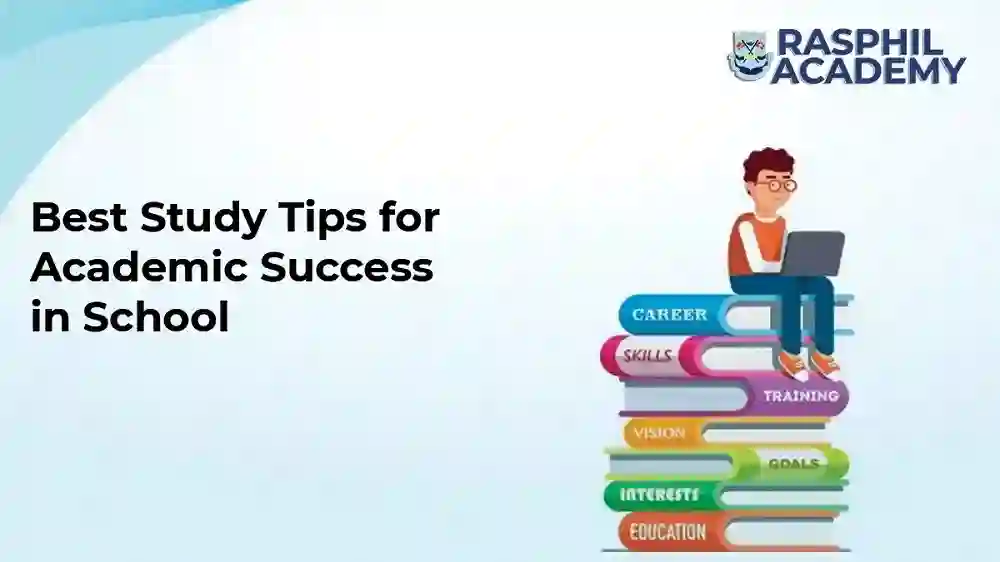Proven Study Methods & Tips for Academic Success

Alright, let’s be real—study methods can make or break your academic performance. You’ve probably heard this a thousand times, but hear me out: how you study is just as important as what you study. Ever spent hours reading over your notes and still felt like you retained zero? Yeah, been there. The truth is, the right approach will save you time, stress, and a ton of unnecessary cramming. No need for any “mad dash” study sessions before exams. Let’s dive into some proven study methods that can make you a bona fide academic success.
1. Active Recall: It’s Like Doing Mental Push-Ups
If you’ve ever tried to memorize something by reading it over and over, stop right there. You’re doing it wrong. Active recall is your new best friend. Forget passive reading—this method is like lifting weights for your brain. It’s simple: close your book and force yourself to remember what you just learned.
I learned the hard way that this method works wonders. The first time I tried it, I was like, “This is ridiculous.” But after a few rounds, I felt like I was leveling up. I went from barely recalling half of my history notes to reciting dates like I was born in the Renaissance. No joke—active recall made a huge difference in my exam scores.
You don’t have to memorize word for word—just make an effort to test yourself. Write it down, say it out loud, or quiz yourself using flashcards. Trust me, your brain will thank you for it later. The longer you wait to test yourself, the quicker you’ll forget. Your best bet is to practice before the information slips away—basically keep your memory on a leash.
2. Spaced Repetition: It’s Like a Netflix Series, but for Learning
Okay, so you’ve tried active recall. Now what? Time for spaced repetition—think of it as the learning equivalent of binge-watching a series, but with breaks. Spaced repetition involves revisiting your notes at intervals that increase over time. If you’ve ever heard of the “forgetting curve,” then you know your brain needs a little help to keep memories from sliding into oblivion.
Here’s the fun part: using apps like Anki or Quizlet is like having a personal study assistant that organizes your review schedule for you. You review the stuff you suck at more often and the stuff you’ve got nailed less frequently. It’s like taking a test, but without all the pressure of actually taking one. So yeah, this method is a game changer.
Pro tip: If you’re studying a huge chunk of material, break it into smaller pieces and review each one regularly. You’ll remember things better and spend way less time re-reading everything.
3. Pomodoro Technique: 25 Minutes of Glory
Now, let’s talk about time management—a crucial part of the process. When I first heard about the Pomodoro Technique, I thought it was some fancy Italian cooking hack. Turns out, it’s actually a study method that’s perfect for us short-attention-span folks. The idea is simple: break your study sessions into 25-minute chunks of pure focus. After that, you get a 5-minute break. That’s it.
This method might sound like overkill at first, but it works. When I started using it, I couldn’t believe how productive I was in such a short time. My brain used to wander after 15 minutes, but now it’s like I’ve been given permission to get distracted after doing some serious work.
Plus, the 5-minute breaks? Godsend. I’d stand up, grab a snack, or scroll through Instagram (but only after I did the work, okay?). The little bursts of focus followed by breaks kept me from burning out, and I ended up finishing assignments faster. So yeah, Pomodoro’s worth it, and I’m not even Italian.
4. Mind Mapping: Doodle Your Way to Success
Here’s a fun one—mind mapping. I’m not talking about scribbling random notes all over a piece of paper (although I’ve definitely done that too). A proper mind map is an awesome way to organize your thoughts and study material. It’s like your brain on paper.
Instead of reading through your textbook like a zombie, use a mind map to break down topics into connected ideas. When I started using mind maps for chemistry, I felt like I was putting together a puzzle—everything clicked. You put the main topic in the center, then branch out to related sub-topics. It’s like a tree of knowledge, and you’re the one planting the roots.
I’m telling you, when you’re staring at a massive chapter and it feels like the words are swimming in your brain, making a mind map will give you structure. You’ll know exactly where to focus and where to spend less time. Trust me, after mapping out one chapter, I felt like I could teach it to someone else. #Goals.
5. Study Groups: Yes, They Actually Work
I used to be the “lone wolf” type when it came to studying. The idea of a study group made me want to pull a Scooby-Doo and run for the hills. But hey, fast forward past three failed attempts, and I realized they’re actually not that bad. In fact, study groups are a solid way to reinforce what you’ve learned. Bonus: you get to learn from others.
One of the best things about study groups is that you get to teach and explain stuff. As the saying goes, “If you can’t explain it, you don’t understand it.” So, when I had to teach my friend Sarah about photosynthesis (I’m a biology major, don’t ask), I realized I knew way more than I thought.
The best part? Each person in the group can offer different perspectives on the material. Some people might have trickier ways of remembering things. Sometimes all it takes is a simple explanation from someone else for everything to click.
6. Environment Matters: Your Study Space Can Be a Power Move
You’ve probably heard it a million times, but I’ll say it again: your study space is important. Honestly, my first attempt at studying in my dorm room was a disaster. Bed? Check. Distractions? Check. Productivity? Zero. Y’all, I was a professional procrastinator.
Anyway, here’s the kicker: when I cleaned up my desk, added a lamp with good lighting, and kept my phone out of sight, I got way more done. The difference is huge. Your brain associates the space with work, so make it a place where you want to focus. No, a cozy couch doesn’t count. You need a dedicated spot that’s free from distractions—trust me, your Netflix queue can wait.
7. Take Regular Breaks: Seriously, You’re Not a Robot
Long story short: Don’t be like me in my first semester, where I’d spend hours studying without any breaks, thinking I was being productive. Nope, not even close. I was burnt out after two hours.
It’s essential to give yourself some breathing room. Taking breaks isn’t a waste of time—it’s actually part of the process. Step outside, get some fresh air, stretch, or grab a snack. A quick break every hour keeps your mind sharp and prevents you from feeling like you’ve been buried under textbooks.
Bonus: Try setting a timer to remind yourself to step away for a few minutes. You can even make a game out of it (like, “Can I finish this chapter before my break?”).
8. Practice Tests: It’s Like Prepping for the Real Thing
Okay, let’s get one thing straight: practice tests are not optional. I don’t care if you’re the smartest person in the room—take the test before the test. It’s a game-changer.
When I first started doing practice tests, I had no idea how much I was missing. You get a feel for the format, the tricky questions, and even the time pressure. It’s basically like training for a marathon, but instead of running, you’re answering questions. Plus, after you do it, you get to see where you’re weak and need more practice.
So yeah, if you’re studying for finals or prepping for any exam, simulate the real thing as much as possible. It’ll boost your confidence and help you avoid those last-minute “OMG, I forgot everything!” freak-outs.
Wrapping It Up: Study Smarter, Not Harder
So, here’s the bottom line: you don’t need to spend hours studying the same thing over and over. You need quality, not quantity. Incorporate study methods like active recall, spaced repetition, and Pomodoro into your routine, and you’ll see a massive difference. Focus on understanding, remembering, and testing yourself instead of passively reading your notes. You’ll save time and stress, and hey, you might even enjoy the process more.







